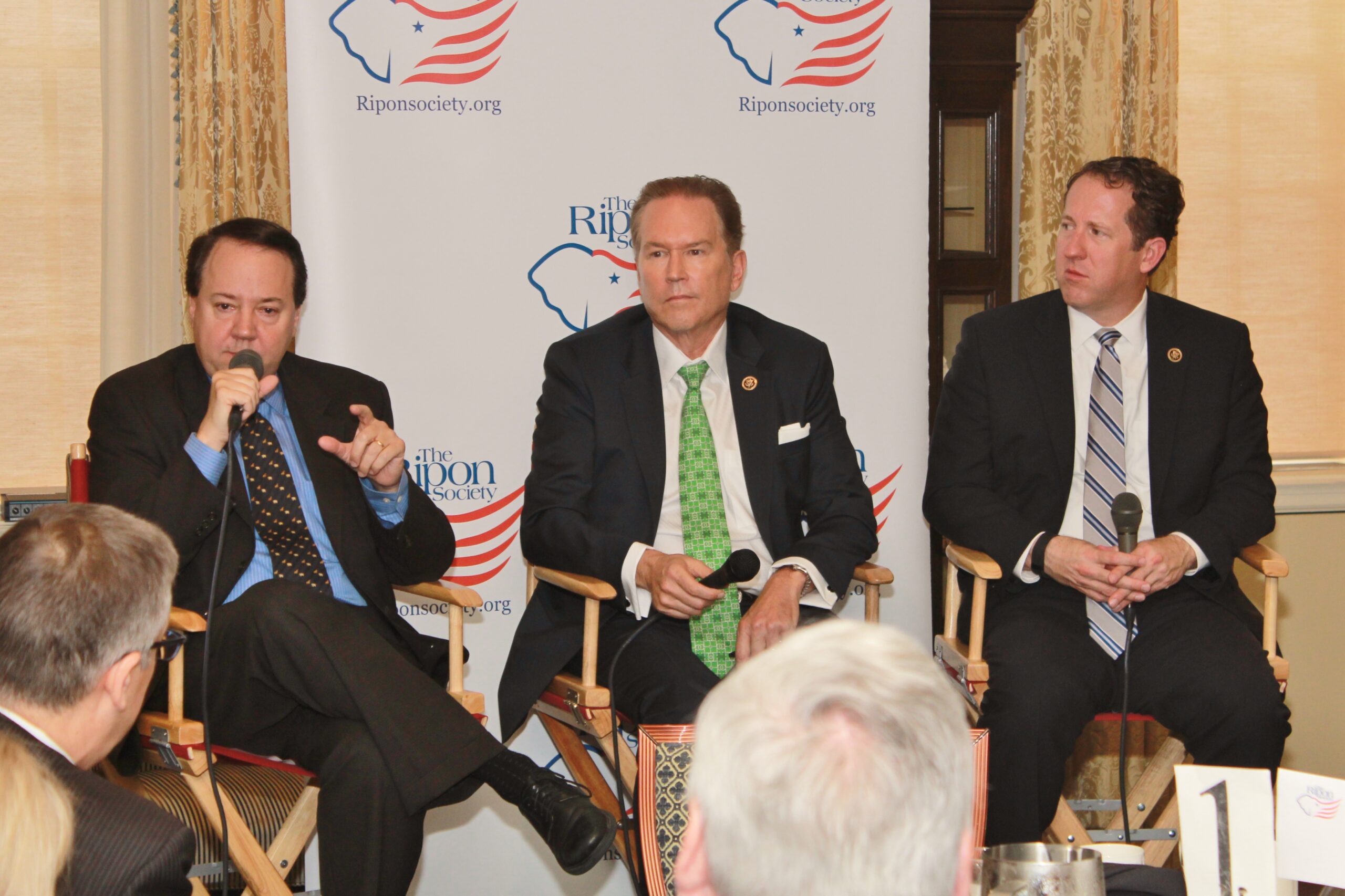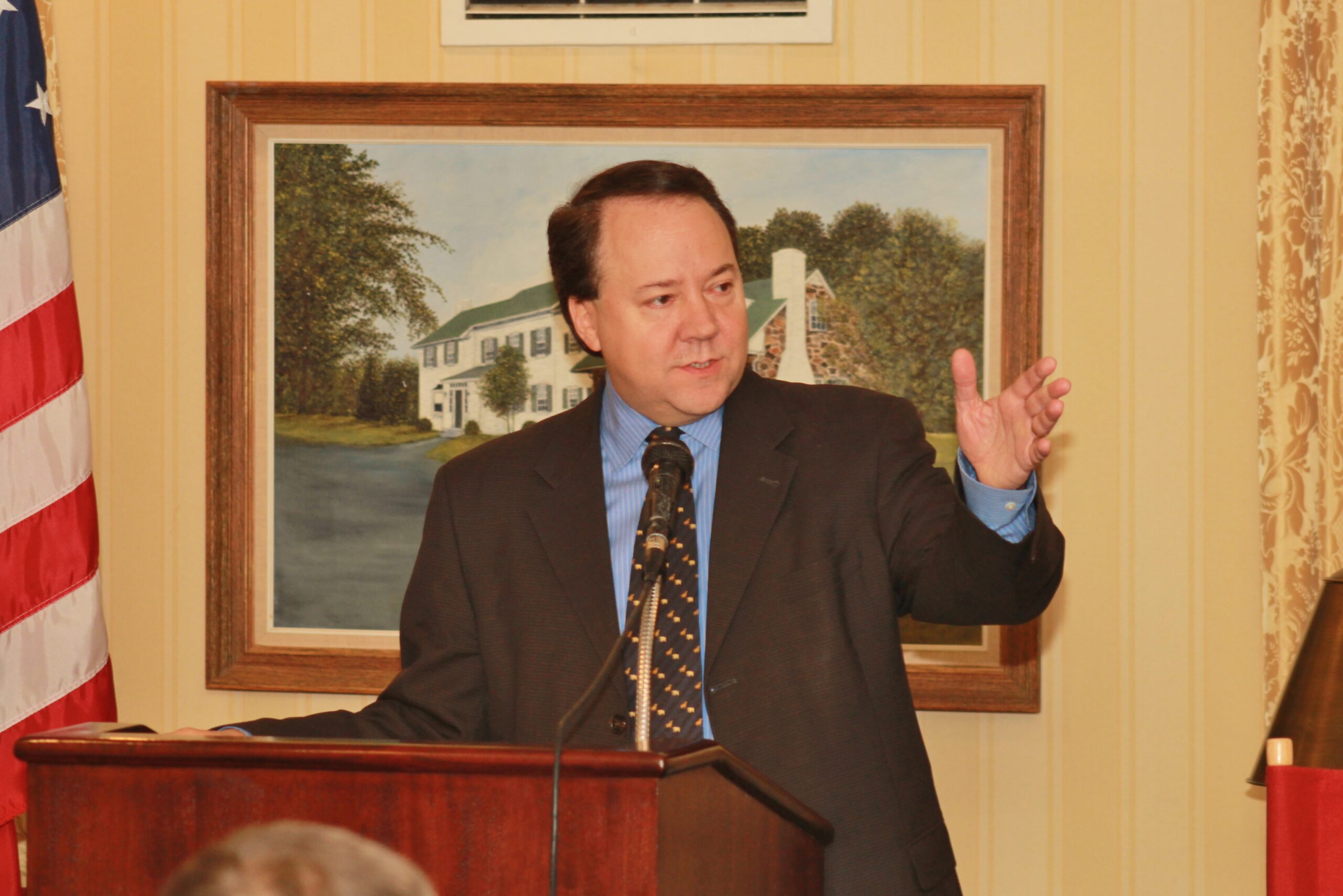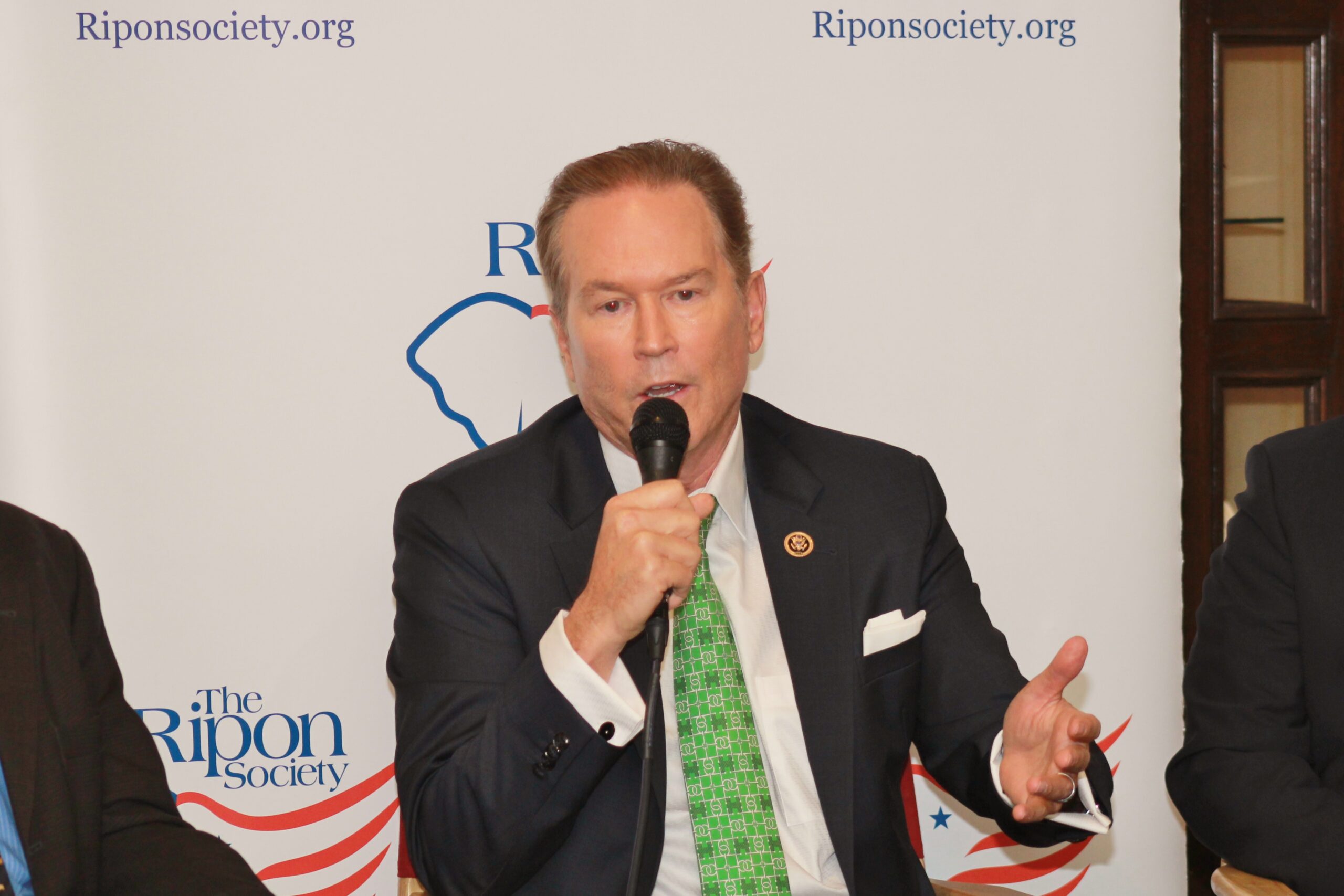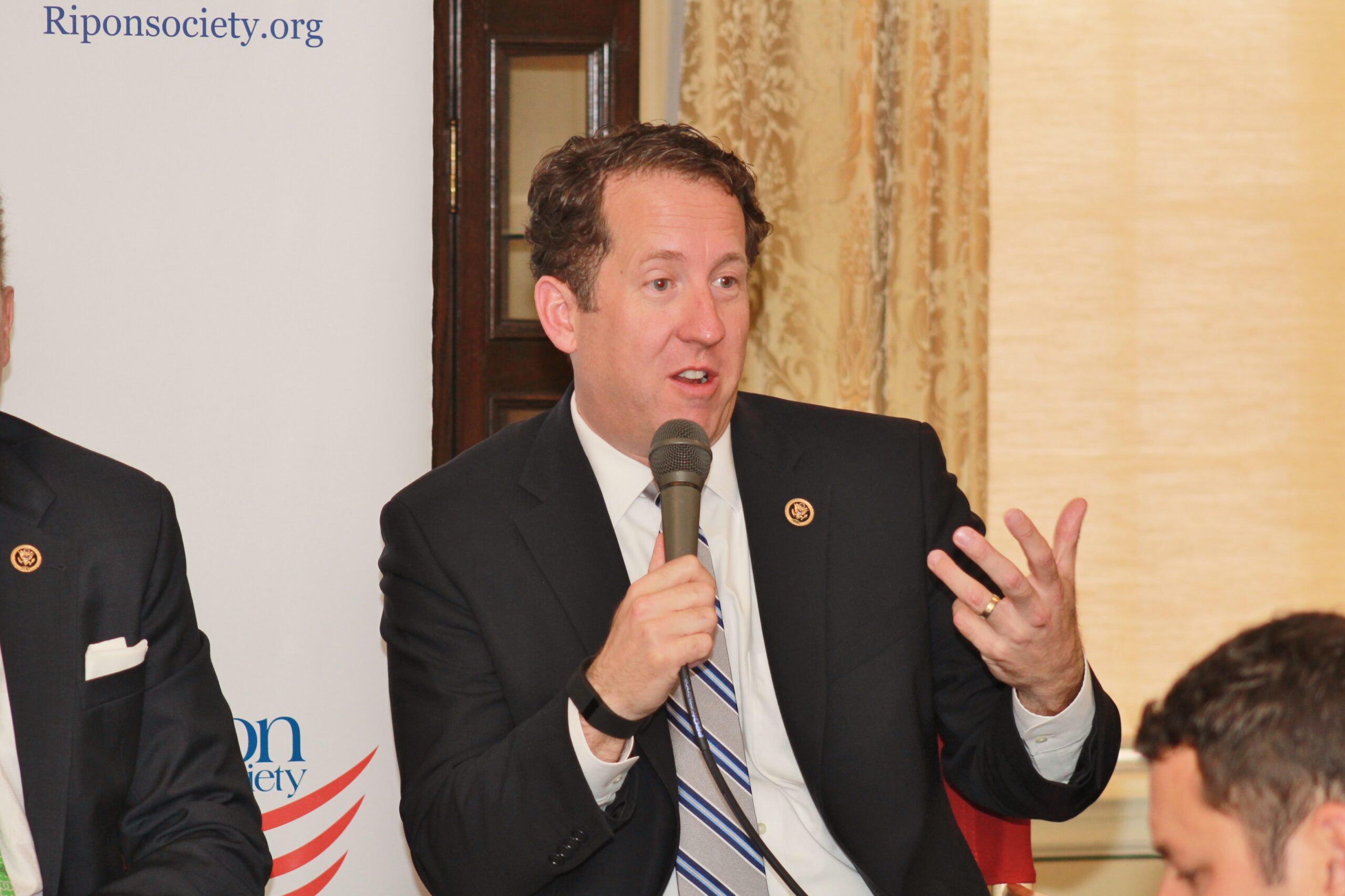
WASHINGTON, DC – With health insurance premiums and deductibles continuing to rise, three leaders of the Ways & Means Subcommittee on Health appeared before a breakfast meeting of The Ripon Society yesterday morning to discuss the effort they are spearheading to reform the nation’s health care system and provide quality and affordable coverage to people across the United States.
The leaders were U.S. Rep. Pat Tiberi (OH-12), who serves as Chairman of the Subcommittee; U.S. Rep. Vern Buchanan (FL-16), who serves on the Subcommittee and spent 40 years as a successful businessman before his election to Congress in 2006; and, U.S. Rep. Adrian Smith (NE-3), who also serves on the Subcommittee and served eight years in the Nebraska Unicameral before coming to Washington, also in 2006.
Tiberi kicked off the discussion by talking about some of the Subcommittee’s key accomplishments over the past year, and some of its key agenda items in the next few months.

“As you know,” he stated, “last year we finally put an end to the doc fix so that doctors could focus on patient care and not worry about unpredictable payments. By replacing the way that physicians are paid and consolidating the separate quality measurement systems, we have taken a great step towards the ultimate goal of fully integrated value-based care. At the end of April, CMS released regulations to implement this historic, bipartisan fix. We took our first look at these regulations in a hearing last week.
“I’ve heard from small rural providers, like an ophthalmologist on the edge of Appalachia who I know, that the MACRA rule will impact them much differently than providers in large group practices. I expressed this concern to Administrator Slavitt, and I’m hopeful that CMS will work with us to ensure that small providers aren’t left behind. Going forward, we will continue to do robust oversight on a bipartisan basis to ensure this new law works for providers, doctors, patients and seniors.
“On a similar front, today I am introducing legislation that makes responsible steps to further strengthen Medicare and ensure hospitals have the tools they need to deliver high-quality, affordable care. It includes many provisions that are priorities of the members of the Ways and Means Committee, including an exception from site-neutral payment cuts to hospital outpatient departments that are under construction. This will give our communities and hospitals more certainty going forward.
“It also includes two provisions to strengthen Medicare Advantage. One is written by Congressman Buchanan. A true sign of a strong bipartisan solution – this bill is fully paid for. I hope we will see further action on this in the coming weeks. Overall, this hospital package and the SGR repeal are important bipartisan achievements. They show that when we work together we can solve problems for Americans everywhere.”
“Obamacare is proof that putting the government at the center of our health care system harms patients, families, providers, and businesses.”
Tiberi has served as Chairman of the Health Subcommittee since January of 2015. He previously served as Chairman of the Ways & Means Subcommittee on Trade. Elected to Congress in 2000, Tiberi has forged a reputation as a consensus-building conservative during his years in Washington, and as a common sense leader focused on solutions.
In addition to serving as Chairman of the Health Subcommittee, Tiberi is also helping to steer the Health Care Reform Task Force that was established by Speaker Paul Ryan and charged with developing a positive agenda that Republicans can run on this year.
The Ohio lawmaker touched on these efforts in his remarks.
“Our mission statement is to modernize American health care with patient-centered solutions that improve access, choice, and quality, lower costs, promote innovation, and strengthen the safety net for the most vulnerable,” he said of the Task Force. “Obamacare is proof that putting the government at the center of our health care system harms patients, families, providers, and businesses. This is why we need to replace Obamacare’s obsolete, one-size-fits-all approach with innovative, market-based, patient-centered solutions.”
To achieve this goal, Tiberi said, the Task Force is following five basic principles. The principles include:
1) Empower every American with the ability to gain access to coverage that is affordable and portable.
2) Provide Americans with more choices, not mandates, so they have the freedom to pick plans and providers that best fit their unique health care needs.
3) Protect the quality of care for all patients – including those with pre-existing conditions.
4) Promote innovation to improve competition, harness the power of new technologies, lower prices, and foster better cures and treatments for patients; and,
5) Save Medicare and Medicaid to strengthen health care security for seniors and America’s most vulnerable.
“Stay tuned,” Tiberi added. “Our plan is to release a white paper on these priorities in June. With this being the presidential year that it is, I think it’s also important to note what I often tell my constituents in Ohio and my staff – namely, I’m here to make law, not make noise.”
Buchanan echoed Tiberi’s remarks, and touched on his own experiences as a successful businessman and how it shapes his view of health care today.

“There are a lot of big issues,” the Florida lawmaker observed. “The debt and the deficit are the most troublesome. But health care is something that’s got to get addressed in a big way. When I was chairman of our local chamber, we had 2,400 businesses that were part of that chamber, and the number one issue by far was affordable health care. I read last week that something like 62 percent of Americans have less than $1,000 in the bank. Part of the reason for that, I think, is the cost of health care is bankrupting the middle class. In our companies over the years, we paid for everybody and everything. Today, a lot of those costs – half and often more – are getting pushed to the employees.”
Smith agreed, and talked about how the one-size-fits all mentality of Washington doesn’t fit the people he represents back home.

“I represent a rural district,” he declared. “We have 54 critical access hospitals. Believe it or not, there used to be more. What I like to point out is that they’re all different. They may have the same designation based on the number of beds that they have or don’t have, but they each reflect the expertise of their providers. Three family practice docs can have different areas of expertise. I’m working on making sure that we allow some flexibility to capitalize on the different strengths of many of these providers.”
Following their remarks, the Health Subcommittee Members were asked their thoughts on the Affordable Care Act and how Americans are increasingly being faced with higher premiums and out-of-pockets costs.
“Let’s face it,” Smith stated, “the premiums since Obamacare are higher – certainly higher than we were told they would be and higher than what they were before. I’m hearing from constituents who are opting out and just paying the fine, paying the tax penalty. That is not a sustainable scenario. We’ve got some major issues that beg for a bold solution.”
Buchanan concurred, and shared his thoughts on what at least one of those solutions should be.
“You’ve got to have competition in the system” he stated. “I’ve been in business for 40 years, and competition is a good thing. We’ve got to figure out how to be more efficient and make sure things are priced where it makes some sense.”
The Ripon Society is a public policy organization that was founded in 1962 and takes its name from the town where the Republican Party was born in 1854 – Ripon, Wisconsin. One of the main goals of The Ripon Society is to promote the ideas and principles that have made America great and contributed to the GOP’s success. These ideas include keeping our nation secure, keeping taxes low and having a federal government that is smaller, smarter and more accountable to the people.



